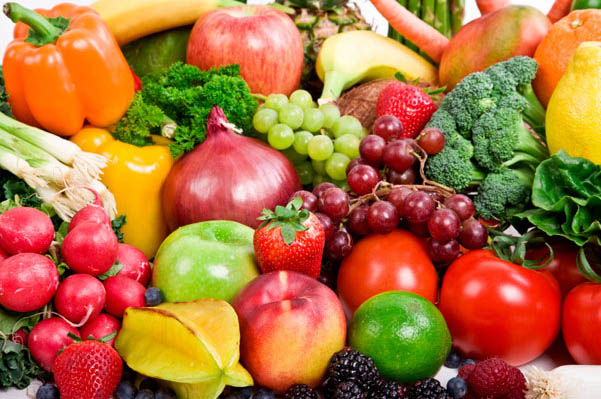Sports nutrition basics
Sports nutrition basics
What recreational or professional athletes eat can greatly enhance their performances.
The following nutritional guidelines from Cindy Mynrd, MS, RD-A San Diego-based health & medical writer & registered dietitian who specializes in sports medicine, eating disorders & weight-loss can help you excel in your sport.
1. Consume sufficient calories.
Fueling the body with enough calories at frequent, regular intervals during the day promotes strength, speed and stamina. Specific calorie needs very widely; yours depends on your gender, body size and sport. Male athletes who train for 90 minutes or more per day need about 50 kilocalories (kcal) per kilogram (kg), or 2.2 pounds, ob body weight per day; female athletes need 45 to 50 kcal per kg of body weight per day.
2. Eat carbohydrates.
Carbohydrates supply power to the brain and body and produce stores of glycogen, a substance converted into glucose whenever the body needs it. Low levels of blood sugar and muscle glycogen can seriously impair performance. Experts recommend that athletes consume 6 to 10 grams (g) of carbohydrates per kg of body weight per day. For example, a 150-pound (68kg) triathlete needs 408 to 680g of carbohydrates daily.
3. Eat the right amount of protein.
High-protein intakes can compromise carbohydrate intake, negatively affecting your ability to train or compete at high levels. Your specific protein requirement depends on your sport, but you generally need 1.5 g of protein per kg of body weight per day. For example, a 165-pound (75kg) athlete needs about 112g of protein.
4. Consume enough fat.
Although high-fat intakes are not recommended, extremely low fat diets can hurt athletes performance as well. In general, limiting fat intake to 1g per kg of body weight per day is sufficient. For example, a 150-pound (68kg) athlete could eat about 68 g of fat.
5. Consider a vitamin and mineral supplement.
However, keep in mind that, although a one-a-day multivitamin and mineral supplement may offer a margin of safety by providing “nutritional insurance,” it will not compensate for a poor diet.
6. Replace fluids.
Water helps improve energy, stamina, performance and cramping tolerance of almost all athletes. The American College of Sports Medicine recommends that athletes drink 2 cups of fluid 2 hours before exercising, 0.5 to 1 cup of fluid every 15 minutes while exercising and, for every pound lost while exercising, 2 cups of fluid afterward.
7. Prepare for endurance sports.
Calories, especially those from carbohydrates, are critical for endurance athletes. Eating carbohydrates before, during and after exercise improves performance and aids post event recovery.
8. Eat right for power sports.
The more muscle mass you have, the greater your need for energy. Therefore, power sports, such as body building, require more calories than do other sports. Susan Kleiner, PhD, RD, author of Power Eating, says that current protein recommendations range from 1.6 to 2 g per kg of body weight per day. You can obtain this amount through diet alone if you consume enough calories.
9. Understand Nutrition for Stop-and-Go Sports.
The bodies of athletes who participate in stop-and-go sports draw on carbohydrates not only to make plays but also to recover from athletic effort. Specific nutritional guidelines have not been established for stop-and-go sports, but choose a diet that meets your energy and nutrient needs, particularly with regard to carbohydrates and fluids, to enhance your speed, strength and stamina.
10. Learn more About Eating as a Vegetarian Athlete.
Vegetarian athletes should make sure that they get enough iron, calcium, zinc, vitaminB12 and D, and riboflavin; these nutrients tend to be in short supply in a vegetarian diet. If you feel that you aren’t performing optimally on your current vegetarian diet, consider working with sports nutritionist.
This handout is a service if IDEA, the leading international membership association in the health and fitness industry.
IDEA PERSONAL TRAINER – September 2002
